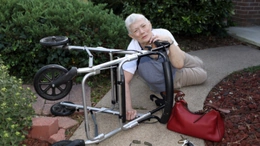How To Choose The Right Dementia Services For Your Loved One

Taking care of a person with dementia is stressful. As it advances, daily activities become harder, and specific assistance is usually required in general.
Selecting the right services for dementia is a complicated choice that relies on how secure, comfortable, and good your loved one is going to feel. It is a problem because there are simply too many options to choose from, depending on which one to get started with.
Being more informed about the types of care and what you should take into account will help you make the right choice.
The given guide will provide you with the idea of the primary types of dementia care services and the main factors to be taken into account when choosing the most appropriate care to use in your family.
Understanding The Types Of Dementia Care Services
The services concerned with dementia care can be distinguished in several ways and refer to various needs and stages of the condition. Being aware of dementia services will enable you to make the right decision on what fits your loved one.
- In-home care enables the individual to stay in an environment that he is used to. The trained attendants make visits to assist with the day-to-day activities such as bathing, dressing, food preparation, and reminders. It is a good choice as far as early-stage dementia is concerned.
- Adult day programs involve group care during the daytime. They provide food, observation, and mental stimulation. The service allows caregivers some free time and keeps the person occupied and safe.
- Memory care units are special units for individuals with moderate to advanced dementia. They belong to the communities of assisted living or nursing homes. The workers are taught how to practice dementia care, and the facility is built to avoid getting lost and feeling lost.
- Respite care is short-term respite for family carers. It may occur either at home or in a facility. This can be useful on holidays, in case of an emergency, or just to avoid burnout.
- Hospice care centers concern themselves with comfort and quality of life during the late stages of dementia. It consists of pain relief, emotional assistance, and family support.
Each service fits different needs. The right choice depends on your loved one’s condition, your family’s situation, and the level of support required.
Factors To Consider When Choosing Services For Dementia
Here are the factors to consider when choosing the right services for dementia:
Stage And Progression Of The Condition
Dementia impacts those differently, and the needs vary according to the stages of the disease. At an initial level, little assistance may be available in the form of reminders to your loved one. In-home care or adult day programs might suffice in this case.
The more severe the condition gets, the greater the concerns requiring practical care and monitoring. More appropriate are memory care units or round-the-clock home care.
The most crucial thing is to select a service that will be flexible in the times to come. Enquire whether they have flexible plans or transitions as the needs of the person increase. The advantages of planning include the lack of stress related to the change of care type.
Staff Expertise And Training
Special skills are needed when addressing dementia care. The personnel should be aware of how they deal with loss of memory, confusion, wandering, and behavior changes. When you go to a facility or interview in-home caregivers, you should ask them how they were trained.
- Do staff receive training/certification for dementia care? Are they under continual education? What do they do when they are agitated or there is an emergency?
- The way staff treat residents should be observed. Are they tolerant, cool, and civil? Their communication and reaction are eloquent regarding the care level.
A powerful team will not consist only of aides but also nurses, social workers, and therapists who will be trained to take care of both physical and emotional needs.
Safety And Environment
Safety is one of the issues that is of utmost importance to individuals with dementia. They can become lost, lose the knowledge of using appliances, or stumble on obstacles.
- You should check the doors of the facility you consider to see whether they are secure, and the exits should be monitored so that the floors do not become slippery.
- It ought to be easy to use and simple in its layout.
- Clear signs, good lighting, and the calmness of the colors also aid in the minimization of confusion.
A caregiver ought to undertake a risk assessment of the living environment at home. Seek the services that assist in modifying the house or emergency alert systems.
Personalization And Cognitive Activities
Individuals with dementia respond better to individualized care that is based on their interests and routines, and request information as to how the service customizes itself.
Do they know the background, tastes, preferences, and habits of the person? Is it possible to make meals, routines, and activities flexible to accommodate them?
Activities of significant meaning also matter. Seek an activity with music, art, games, light workouts, and mind-activity exercises. Those help keep the mind occupied and eliminate boredom or frustrations. Small things can cause joy, too, listening to favorite songs or gazing at old photos.
Family Involvement And Communication
The process of treating a person with dementia is collaborative. The family will be included in decision-making and kept informed by good services.
Ask the providers about the number of times they interact with families. Will you periodically get feedback? Do care plans get reviewed with one another?
At some facilities, family support groups, training sessions, and meetings on the progress and concerns are provided. Such collaboration encourages trust and makes you more confident in what is being offered during the care.
In addition, information should be obtained as to whether the dementia services honor the role of a family and involve them in daily activities, if they desire so.
The knowledge you have of your loved one's personality and history can assist caregivers in performing their duties in a better manner.
Conclusion
Decisions about the type of dementia care are unique and emotional. Relax, inquire, and follow your gut. The correct service will provide safety, respect, and comfort for your loved ones, and peace of mind as well. An answer can be reached with a bit of planning that could support care and quality of life.






















